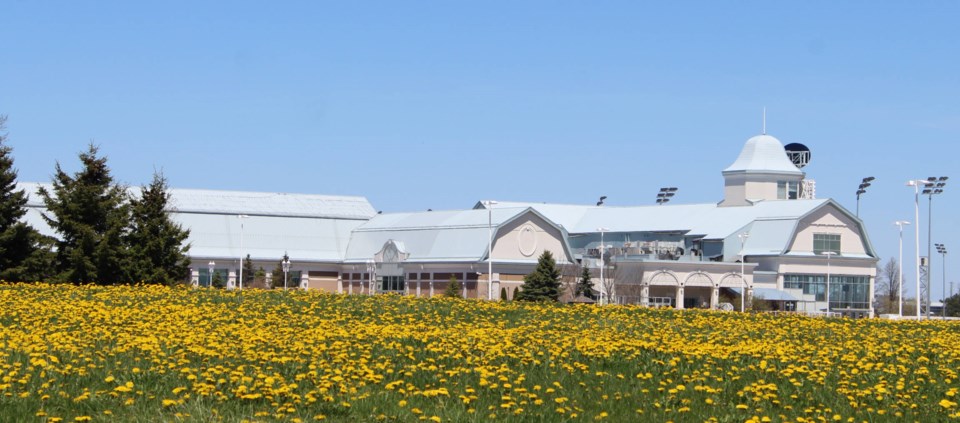The COVID-19 crisis has dramatically changed the landscape in Innisfil and throughout the land. The impact on the economy is expected to be felt for years.
The Town of Innisfil has had a many-faceted response to the pandemic, and to the provincial orders closing public spaces and banning public gatherings.
A pair of reports presented at the May 13 meeting of Innisfil council provided a timeline of the town’s actions, through April and the first half of May, and a summary of local initiatives.
Those have included a commitment by the Innisfil Community Foundation to grant up to $50,000 to non-profit organizations hard-hit by COVID-19, such as Candlelighters Simcoe and Innisfil C4Kids-All Year Round; a $20,000 grant from the Town of Innisfil to the local food bank; and a decision by councillors and the town's chief administrative officer to donate 10 per cent of their monthly salaries to the Innisfil Helping Hands program.
Innisfil Helping Hands provides emergency microgrants of $50 to local families and individuals in immediate need, for the purchase of food or medical supplies.
Other town responses to COVID-19 have included subsidies for transit rides and food delivery services, deferral of a planned increase in the water/wastewater rates, and waiving of late fees and penalties for late payment of property taxes and utility bills.
To keep the community connected, council meetings been live-streamed on YouTube, and staff have continued to update the GetInvolvedInnisfil.ca/Covid19 page.
The town also launched a new social media platform, called Nextdoor, to help link residents who want to help with those who need help during the pandemic – and a Facebook campaign inviting residents to “share a photo that makes you smile” – that led to an uptick in positive images and stories.
A campaign and contest to encourage youth to stay home and practise social distancing attracted interest and 80 entries.
Council was told that Innisfil staff have maintained a balance between working from home, and continuing to deliver services to the community, but that there will be an impact on service levels.
The town will not be adding new gravel to its 80 lane kilometres of gravel road in Innisfil this year, although road grading and dust control will continue.
“We will closely monitor the roads. If there are issues, we will address that,” said the town's manager of operations Jason Inwood. “Certainly, we will address problem areas as they arise.”
Spring clean-up in the parks has begun, but the town delayed hiring students and seasonal staff due to COVID-19. Flower planting has been put on hold.
“We recognize that the echo of COVID will likely be with us for much longer,” said town CAO Jason Reynar.
For that reason, the town will be launching an online round table to discuss the medium- and long-term needs of the community, looking forward to 2021-22.
The town is also expecting to see a financial impact of COVID-19, not only the cumulative cost of the town initiatives to provide relief to residents, and increased costs for cleaning and personal protective equipment, but also a significant loss in revenues.
That includes $110,000 in lost monthly revenues on penalties and interest charged on overdue accounts, a $225,000 operating deficit due to loss of revenue from recreation registrations and facility use; and a potentially major hit resulting from the closure of Gateway Casino and the slots at Georgian Downs.
Casino revenues have been important to the town, which received $972,000 from OLG for the period from January to March, alone.
As the financial report to council noted, “there is a risk that no further funds will be received in 2020,” resulting in a loss of approximately $5.2 million in expected revenues.
New construction also slowed, reducing development charge revenues, a $5.5 million loss, if closures continue to the end of 2020.
While there will be no immediate impact, “there will be financial pressures for the 2021-22 capital budget,” council was told.
In response, councillors decided to cancel or delay capital projects totalling $865,635 in 2020, and adopt a new decision-making framework, too ensure decisions “that are financially prudent and sustainable.”
Deputy Mayor Dan Davidson noted that the town could be looking at revenue losses totalling over $11 million in 2020.
“We are going to be in a deficit position. That’s a lot of money that we’re going to find alternative financial sources for," he said.
Treasurer Audrey Webb agreed.
“We’re going to consider those lost revenues and make adjustments," Webb said.
Coun. Carolyn Payne asked if the federal government was planning to help municipalities who are coping with the impact of COVID-19.
Webb noted that the Federation of Canadian Municipalities (FCM) and Association of Municipalities of Ontario (AMO) have sent a letter to the federal and provincial governments, requesting financial assistance, but “we haven’t received anything yet.”
Mayor Lynn Dollin explained that the province has earmarked $250 million for social services, but all of that has gone to upper tier governments.
“Minister Phillips did say that $250 million was round one,” Dollin said, so more money may be on the way, for the lower tier.
She suggested that Innisfil is “faring better than most” municipalities, largely because it doesn’t have a traditional transportation system, running at a deficit.
That was on May 13; the next day, Premier Doug Ford announced that Phase 1 of the reopening of Ontario’s economy would begin May 19, and the economic outlook and COVID-19 landscape changed again.
The next meeting of council will take place May 27, and will be live-streamed on the town's YouTube channel.



